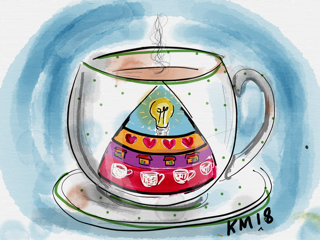An early casualty of public sector cuts, already noticeable some years ago, were cups of tea at meetings.
First, there were no biscuits, then nothing at all, as the trolleys with vacuum flasks, and the women wearing hairnets, were gone.
I understand the reasons. But I think the humble cuppa can add significant value to an event or meeting, for two main reasons.
-
Connect over a cuppa
When you pour yourself a tea, you are quite likely to chat to the next person in line. Coffee cooler [sic] conversations can be important: they help create working relationships, make people feel connected, and act as an informal icebreaker.
I went to a large meeting a while ago, with a board room table of maybe 40 people, many of whom had come some distance to attend. There was nothing to drink, and everyone just arrived, found a seat, sat down and shuffled their papers. At the end, everyone got up and went. If there had been a tea stand, conversations would have happened. People would have met each other – and who knows what ideas and genuine partnerships would have emerged?
-
Basic needs
You may be familiar with Maslow’s hierarchy of needs?
If your physiological needs aren’t met – e.g. food, water, warmth – it is really hard to engage your higher functions – e.g. thinking!
Which you might just be needing if you have complicated discussions to navigate.
As a facilitator, I definitely want people to be engaging their higher functions – to be creative, share perspectives, embrace new thinking. So, I make sure participants know what time the next break is, and that there will be refreshments. And I try to persuade organisers to provide lunch, so everyone can stay in the special space they have created, rather than disappearing off and dealing with emails after nipping to the supermarket.
Why good value?
Big meetings and away days are already, inevitably, expensive. Time is precious, particularly if you add up the value of the hours of the attendees. So it’s really important that such events are effective, make a difference, and deliver the intended outcomes. If organisations, teams, and partnerships are already making this big investment, maybe it’s also worth a cup of tea?





